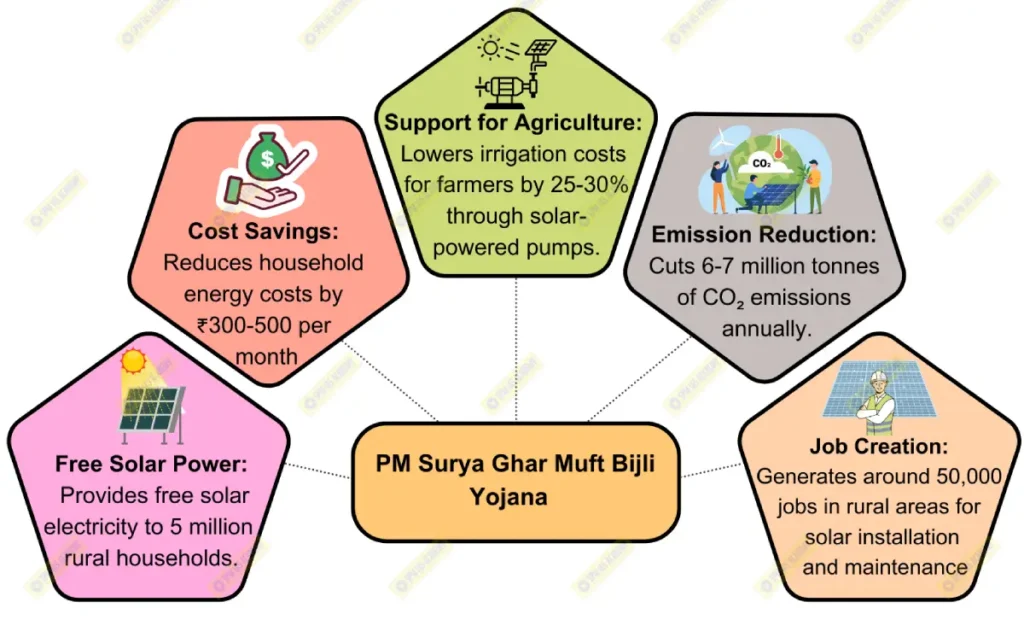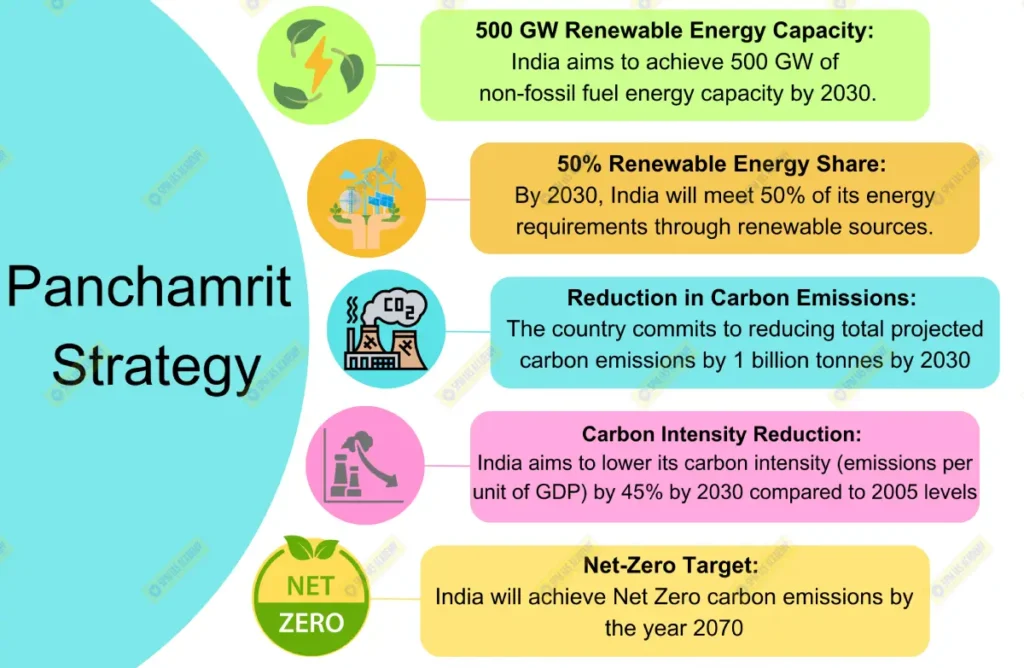The PM Surya Ghar Muft Bijli Yojana is a landmark initiative by the Indian government aimed at providing free solar-powered electricity to rural households. This scheme seeks to improve energy access, reduce the financial burden of electricity costs, and contribute to climate mitigation by promoting clean energy. In rural India, where energy access is often inconsistent and dependent on expensive, polluting fuels, the scheme offers multiple benefits for both the rural economy and environmental sustainability.
Impact on the Rural Economy

- Energy Access and Economic Empowerment: The scheme provides reliable, free solar electricity to rural households, addressing the issue of energy poverty in remote areas. According to government reports, around 24% of rural households still face irregular electricity access. Solar energy provides a consistent power supply, enabling better access to lighting, communication devices, and basic appliances. This helps in boosting productivity in small-scale rural industries, education, and overall quality of life.
- Cost Reduction for Households: By shifting to solar power, rural households can significantly cut down on their electricity bills or eliminate costs associated with traditional energy sources like kerosene and diesel. According to data from the International Energy Agency (IEA), households spend about ₹300-500 per month on conventional energy sources, which can be saved through the Yojana. The scheme, therefore, leads to direct financial savings that can be reinvested into household needs or small-scale businesses.
- Boost to Agriculture: In rural India, agriculture is heavily dependent on energy forirrigation and mechanization. The PM Surya Ghar Muft Bijli Yojana aligns with other programs like PM-KUSUM, which promotes solar-powered pumps for farmers. By reducing reliance on expensive diesel for irrigation, farmers can cut input costs by 25-30%, as per the Ministry of New and Renewable Energy (MNRE). This enhances agricultural productivity and profitability, directly benefiting the rural economy.
- Job Creation: The installation, maintenance, and operation of solar panels generate employment in rural areas. According to IRENA (International Renewable Energy Agency), the renewable energy sector created over 50,000 jobs in India in 2022, with a large portion in rural regions. The scheme promotes skill development in solar technology, fostering local employment and entrepreneurship.

Role in Climate Mitigation
- Reduction in Carbon Emissions: Solar energy is a clean, renewable resource that replaces traditional, polluting energy sources like coal, kerosene, and diesel. The PM Surya Ghar Muft Bijli Yojana significantly contributes to reducing India’s carbon footprint. By shifting millions of rural households to solar power, the scheme is projected to reduce CO₂ emissions by 6-7 million tonnes annually, as per government estimates.
- Supporting India’s Renewable Energy Goals: India has set an ambitious target of achieving 500 GW of renewable energy capacity by 2030, and solar power is a key component of this goal. The Yojana accelerates solar adoption in rural areas, contributing to the overall expansion of India’s renewable energy sector. As of 2023, India has installed 67 GW of solar capacity, and schemes like this will help the country reach its climate commitments under the Paris Agreement.
- Decentralized Energy Generation: The Yojana promotes decentralized energy systems, reducing the load on the national power grid and providing local, sustainable energy solutions. This is particularly important in regions like the North-East, where grid connectivity is limited due to difficult terrain. Decentralized solar power ensures energy security and reduces dependence on fossil fuels in rural, remote regions.
- Sustainable Development Goals (SDGs): The scheme contributes to several Sustainable Development Goals, particularly SDG 7 (Affordable and Clean Energy) and SDG 13 (Climate Action). By providing clean, renewable energy to rural households, it not only addresses the challenge of energy poverty but also ensures that India’s rural growth is aligned with global climate mitigation efforts.
The PM Surya Ghar Muft Bijli Yojana is a transformative initiative for India’s rural economy and climate strategy. It enhances energy access, reduces household costs, supports agriculture, and creates employment, all while significantly contributing to India’s climate mitigation goals. As India continues to expand its renewable energy capacity, this scheme will play a crucial role in ensuring inclusive, sustainable growth across the country’s vast rural landscape.
Check out UPSC Coaching Centre Guwahati | APSC Coaching Centre Guwahati | Crack APSC Exam | UPSC Civil Services Exam | Ethics Paper in UPSC Exams












